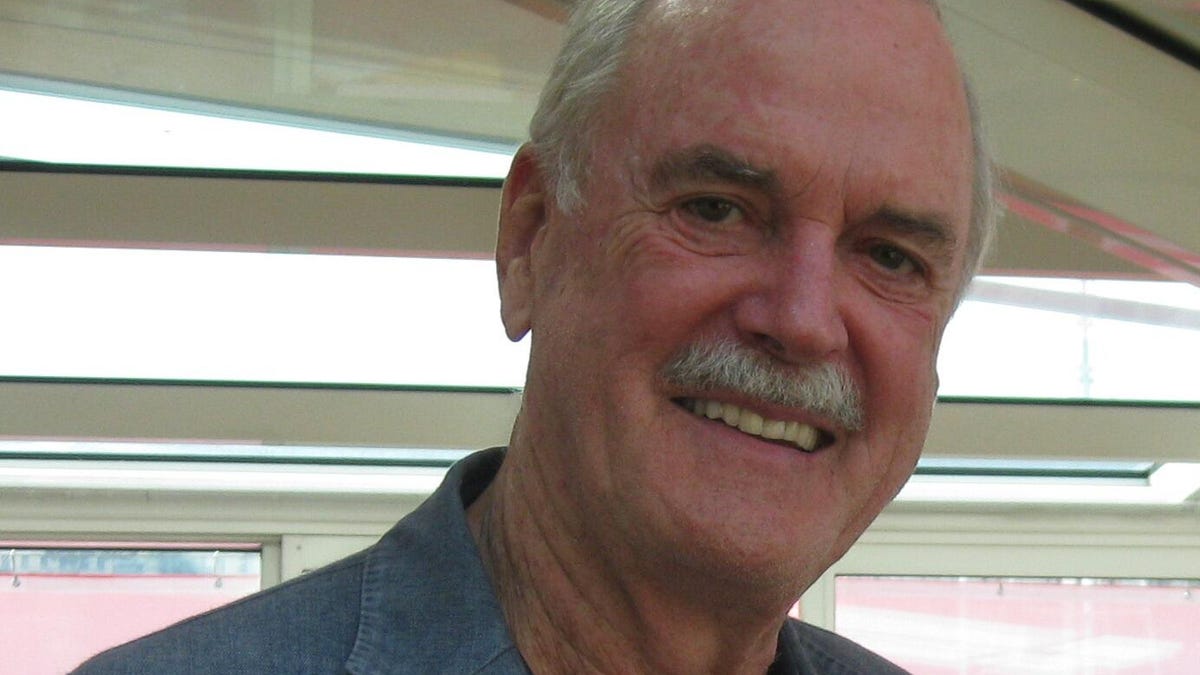 Why You Can Trust CNET
Why You Can Trust CNET John Cleese says the key to creativity is carving out time to play -- and laugh
The British actor, comedian, screenwriter and producer tells CNET's Now What that he's spent decades figuring out what makes creative people so good at it.

John Cleese
John Cleese is pretty funny -- as is obvious to anyone who's a fan of Monty Python, seen Cleese play the disgruntled hotel owner in the British sitcom Fawlty Towers or watched A Fish Called Wanda, which he wrote. But he gets slightly more serious when he talks about how he's spent the past 55 years studying creativity. That is, he's been working to figure out what makes creative people so good at being, well, creative.
The search for an answer may have taken decades, but Cleese, now 80, has distilled his wisdom into a quick, 112-page read called Creativity: A Short and Cheerful Guide. He beams when I tell him it took me less than an hour to read. "Perfect," he says. "That's all you have to spend on it, really."
"It was Mark Twain who once said, 'I'm sorry. This is such a long letter, but I didn't have time to write a shorter one,' which is a wonderful remark. Well, I had the time to write a shorter book because I've been thinking about this for so long," Cleese tells me during an interview for CNET's Now What series with thought leaders. Creativity, he says, is "just being able to have better ideas -- everything from flower arranging to quantum mechanics. There's always a way of doing something better."
All those years of reading and research, including talking to academics, psychologists and creative types, including his friend the screenwriter William Goldman (Butch Cassidy and the Sundance Kid, The Princess Bride), boils down to this: Creative people take the time and carve out a personal space (with no distraction from smartphones , chores and so on) to play. He calls out that there are two ways of operating, with an open or closed mind, and cites psychologist Guy Claxton's 1999 book, Hare Brain, Tortoise Mind: How Intelligence Increases When you Think Less as part of his source material.
"You just need to find a space where you're not going to be interrupted, and then you need to give yourself an hour and a quarter, an hour and a half, just to play because the first 15 or 20 minutes all you can think of is the things you should be doing," Cleese says, batting away at a mosquito that's Zoombombing our conversation.
"But then the mind slowly settles ... a little bit like, you know, the glass of cloudy water. If you just sit there, the cloud eventually sort of drops down and settles and you get a bit clearer," he says. "And then you can just ... start playing around with whatever idea is interesting to you at that time -- it might be a sketch or it might be a better way to run an office. It doesn't matter."
Another bit of useful advice: Never turn anything in until the deadline, and embrace the chaos and uncertainty that comes from even missing a deadline. "It's terribly difficult to create if you're under deadline pressure," Cleese says. "So you've got to try and get rid of that time pressure. I once had a chance to meet the guy who wrote Chinatown, one of the greatest films of all time, Robert Towne. And I said, 'But when you're doing rewrites, when something's gone wrong with the movie and you have to reshoot the next day, how do you stay loose?' He said, 'I just forget that I have a time limitation.'"
To hear more about what Cleese has to say -- including that he's working on a musical featuring the character Ken from A Fish Called Wanda, who "doesn't stutter when he sings" -- just watch our video interview.
Now What is a video interview series with industry leaders, celebrities and influencers that covers trends impacting businesses and consumers amid the "new normal." There will always be change in our world, and we'll be here to discuss how to navigate it all.

